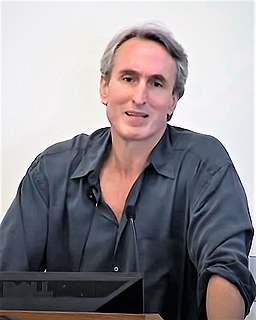A Quote by Rand Paul
Many Americans who have suffered during a recession have had to cut their spending 1 percent, and they didn't like doing it, but they were able to do it to get their family's finances back in order.
Related Quotes
I did four movies where I gained, like, fifty pounds. I had curly hair, and I had all of this facial hair. I had put on all this weight for these movies, and I did four or five of them back-to-back. Then I cut the weight and I got fit again. I cut my beard and I took away the mustache, and people were like, 'What are you doing?'
Is it just a coincidence that as the portion of our income spent on food has declined, spending on health care has soared? In 1960 Americans spent 17.5 percent of their income on food and 5.2 percent of national income on health care. Since then, those numbers have flipped: Spending on food has fallen to 9.9 percent, while spending on heath care has climbed to 16 percent of national income. I have to think that by spending a little more on healthier food we could reduce the amount we have to spend on heath care.
How important are money management and finances in marriage and family affairs? Tremendously. The American Bar Association recently indicated that 89 percent of all divorces could be traced to quarrels and accusations over money. Another study estimated that 75 percent of all divorces result from clashes over finances. Some professional counselors indicated that four out of every five families wrestle with serious money problems.
Many Americans are feeling, you know, shut out, shut down, the great recession hasn't ended for too many Americans, wages are flat, families are struggling, not enough new jobs, or new businesses are being created, and it's important that we all try to figure out what we're going to do, and that's what I've done my entire life, fighting for a higher minimum wage, or family leave, now paid family leave which I believe in, equal pay for equal work.
Obama has paid and will continue to pay dearly for betting on his stimulus package. Because of it, the Bush recession is becoming the Obama recession much faster than it would have had he adopted a more gradual approach to solving economic problems. By jumping in immediately, as he did, in order to increase government spending and pass eight years of Democratic dreams in one day, he made the public expect a solution.
When I first started in the industry back home in Australia at 18, there was a lot of push and shove as to how I should dress, if I was allowed to cut my hair short, if I had too many tattoos. If I didn't get a campaign, or if I didn't get a role, they would always come back to, 'Well, she dresses like a boy.'
My approach to cutting spending as president, is to do a ten percent across the board cut of all federal agencies, and then ask each of my new agency heads to find another ten percent by drilling down. That's what you do in business to come up with approximately 20 percent cuts for the first fiscal year budget.
I don't want to give a lecture to this body that's out there. You know, I mean, having had the heart attack, I want to get it back functioning. And as a practical matter, I mean if you were Bear Stearns, and you were a shareholder, you know, you lost 90 to 95 percent of your money. A good many lost their jobs. They lost very cushy lives, many of them.

































